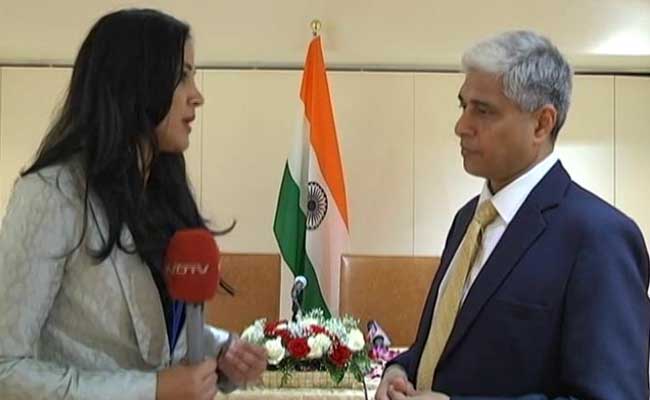India adopted a strategy to diplomatically isolate Pakistan following the Uri terror attack. (AP)
- Terror will be key part of Sushma Swaraj's UN speech on Monday
- India is rallying support for global pact on terror called CCIT
- Efforts have global support, considering all options to pass CCIT: India
Did our AI summary help?
Let us know.
New York:
As India builds up momentum for its strategy to isolate Pakistan internationally by raising the issue of terrorism after the Uri attack, a key response is one the country has been building up for years.
In Foreign Minister Sushma Swaraj's address to the UN on Monday, India's aim will be a push towards a stronger consensus to combat terrorism in the form of the Comprehensive Convention on International Terrorism or CCIT.
"Terrorism is undoubtedly the single-biggest threat to international peace and security," Ministry of External Affairs spokesperson Vikas Swarup told NDTV on Friday. The convention would give "legal teeth to prosecuting terrorist acts", he said.
Launched in 1996 by India, the CCIT provides a legal framework which would make it binding for all countries to deny funds and safe haven to terror groups.
But the pact has been deadlocked over differences on defining terrorism and terrorists as certain countries, including the US, deem some violent uprisings as "liberation movements" or are worried about their foreign interventions.
 However, the initiative has seen "a lot of progress" and there was a wide agreement on most of it, Mr Swarup said.
However, the initiative has seen "a lot of progress" and there was a wide agreement on most of it, Mr Swarup said.
To forge that last mile of consensus, India is considering all options, including "voting", the country's Ambassador to the UN Syed Akbaruddin told reporters.
Though he did not elaborate on elements of Ms Swaraj's address, Mr Swarup said "you can expect a continued focus from India on the theme of terrorism".
Ms Swaraj is expected to give a stinging response to Pakistan Prime Minister Nawaz Sharif's speech at the United Nations General Assembly, in which he focused elaborately on Kashmir.
Mr Akbaruddin said that in the meetings that Minister of State for External Affairs M J Akbar held on the sidelines of the General Assembly session, "there was resonance" of India being a victim of terrorism.
Mr Akbaruddin said a reform of the Security Council will also be the focus of India in the current UN General Assembly session.
In Foreign Minister Sushma Swaraj's address to the UN on Monday, India's aim will be a push towards a stronger consensus to combat terrorism in the form of the Comprehensive Convention on International Terrorism or CCIT.
"Terrorism is undoubtedly the single-biggest threat to international peace and security," Ministry of External Affairs spokesperson Vikas Swarup told NDTV on Friday. The convention would give "legal teeth to prosecuting terrorist acts", he said.
Launched in 1996 by India, the CCIT provides a legal framework which would make it binding for all countries to deny funds and safe haven to terror groups.
But the pact has been deadlocked over differences on defining terrorism and terrorists as certain countries, including the US, deem some violent uprisings as "liberation movements" or are worried about their foreign interventions.

Foreign Ministry spokesperson Vikas Swarup said there was wide support for CCIT.
To forge that last mile of consensus, India is considering all options, including "voting", the country's Ambassador to the UN Syed Akbaruddin told reporters.
Though he did not elaborate on elements of Ms Swaraj's address, Mr Swarup said "you can expect a continued focus from India on the theme of terrorism".
Ms Swaraj is expected to give a stinging response to Pakistan Prime Minister Nawaz Sharif's speech at the United Nations General Assembly, in which he focused elaborately on Kashmir.
Mr Akbaruddin said that in the meetings that Minister of State for External Affairs M J Akbar held on the sidelines of the General Assembly session, "there was resonance" of India being a victim of terrorism.
Mr Akbaruddin said a reform of the Security Council will also be the focus of India in the current UN General Assembly session.
Track Latest News Live on NDTV.com and get news updates from India and around the world

